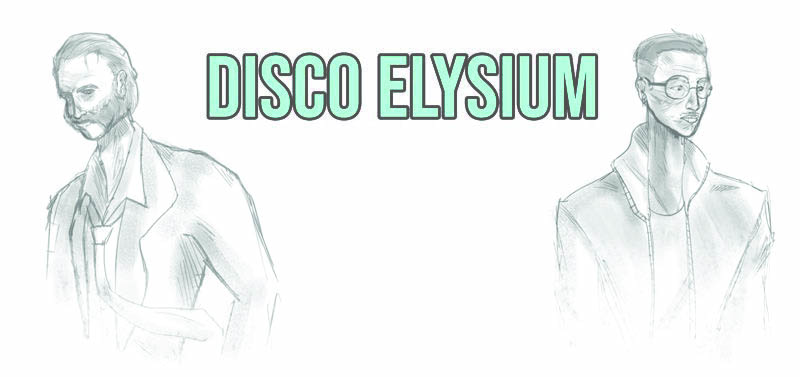
Graphic by Astrid Hernandez | Mercury Staff
Award-winning role-playing video game ‘Disco Elysium’ puts players’ investigative skills to test
“Disco Elysium” is a top-down third-person isometric POV
open world RPG that starts the player in the blackness of a void, guided by an
“Ancient Reptilian Brain.” The player can choose to either begin feeling the
emotions and sensations that come with being alive and wake up, or stay in the
void, visiting such locations as “Nothingtown.”
The beginning of
“Disco Elysium” is just a small slice of the wackiness and choice the player
gets throughout the rest of the game. In short, it’s a virtual Drunk Detective
“Dungeons and Dragons” campaign, and the sheer amount of choice combined with
excellently written dialogue makes “Disco Elysium” an amazing RPG experience.
“Disco Elysium” was developed in four years by ZA/UM, an
Estonian indie studio inspired by various detective stories, other RPGs such as
“Planescape: Torment,” artists such as Rembrandt and Jenny Saville and shows
such as “The Wire.” Without spoiling too much, the player is a detective in an
open world, with a vast amount of things to do. Most obstacles are overcome
through skill checks, like a tabletop role-playing experience, with 24 possible
skills to use and level up.
The tabletop-inspired skill checks, complete with virtual
dice rolling and the equivalent of a nat 1 or nat 20, can make the game tedious
for those expecting a traditional RPG experience. “Disco Elysium” was
originally written as a tabletop campaign, so the gameplay is more akin to
point and click rather than hack and slash. The art style, while unique and
inspired, might look off to some, and constantly pressing tab to see what’s
interactable might be tedious to those who are looking for the correct path
forward. The open world itself is also contained essentially within 2 blocks in
the city of Revachol, turning off players looking to explore a vast expanse.
While that may not sound entertaining, the gameplay itself
is more of a vehicle to the real meat of the game: its writing and variety of
choice. For all intents and purposes, the player is only limited by where they
can physically go and what they have on them. Dialogue options allow the player
to roleplay as a large variety of characters, with given options allowing the
player to play a competent detective or an absolute buffoon.
Your skills also affect your dialogue options. In two
different playthroughs, when talking to someone you’re given the chance to ask
them out for a coffee. Given a high-leveled skill, your brain will chime in
with the skill’s relevant expertise, in this case allowing you to sense that
they do not like you. But without this skill, and with a different skill, you
might be given the exact opposite impression, encouraging the player to ask out
someone that is disgusted with them. These skill-inspired inner thoughts can
even lead to extensive conversations with yourself, allowing you to contemplate
whether your corpse will be riddled with bullets or ‘disco’ upon death.
Besides skills, the player also has access to a thought
cabinet, a collection of thoughts that the player can come across and
internalize throughout their adventure.
Player character aside, all the characters in the game feel
alive. While the dialogue option selections might be reminiscent of “Fallout,”
“The Witcher,” and even other text adventures, the excellently written dialogue
and variety of dialogue options depending on player skills and thoughts lead to
almost entirely unique conversations depending on different runs. And unlike
“Fallout” and others, there are no real major guides of all the reactions and
dialogue options, or all the inner monologues caused by all the different
combinations of thoughts and skills. This means that the player is forced to
discover everything for themselves, solve the varied mysteries in Revachol, and
do as many drugs as they like. Or they can do none of those things and take
bribes from a union boss. Or they can become a paranormal investigator. Or even
become a herald of doom from the void.
Ultimately, “Disco Elysium” is a game about exploring all
the options, plotlines and dialogue there is to discover. Unlike open world
games such as the generic Ubisoft experience with endless tasks and mini to-do
lists of boredom, “Disco Elysium” is filled to the brim with well-written
characters, side-tracking and the ability to make the player character into
anything, almost like a DnD campaign run by an amazing Dungeon Master. “Disco
Elysium” is an adventure everyone should experience going into the Roarin’
2020’s.